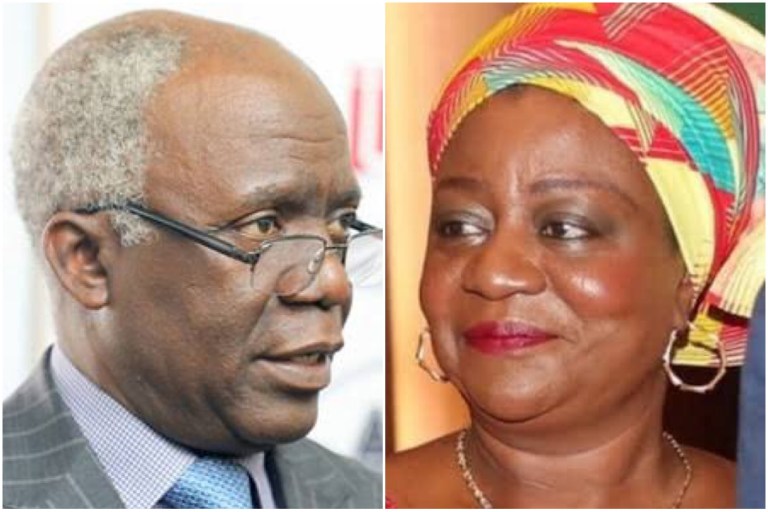The appointment of Mrs Loretta Onochie as the Independent National Electoral Commission (INEC) Commissioner has been met with mixed reaction, as Mr. Femi Falana, the Senior Advocate of Nigeria and the Interim Chairman, Alliance on Surviving COVID-19 and Beyond (ASCAB), faults the appointment.
According to him, Mrs Loretta Onochie is an unrepentant member of the ruling party and has unswervingly attacked members of other political parties as against the legal qualification for the appointment of a member of the commission.
It would be recalled that Mrs Onochie is presently occupying the position of President Muhammed Buhari’s Special Assistant on Social Media.
Mr. Falana stated that the appointment of Mrs. Onochie flouts Paragraph 14 of Part 1 of the Third Schedule to the Constitution as amended by Section 30, Act No 1 of 2010.
His words: “In view of the desire of President Muhammadu Buhari to fill some vacancies in the Independent National Electoral Commission, it has become pertinent to draw the attention of the Council of State and the Senate to the following provisions of the Constitution.
“Paragraph 14 of Part 1 of the Third Schedule to the Constitution as amended by Section 30, Act No 1 of 2010, and a member of the Independent National Electoral Commission “shall be non-partisan”. From the foregoing, it is crystal clear that a card-carrying member of a registered political party or a well-known supporter of a particular political party is constitutionally disqualified from the membership of the Independent National Electoral Commission.
“As an unrepentant member of the ruling party, Mrs Loretta Onochie has consistently attacked members of other political parties. To that extent, she is partisan and therefore not qualified to be a member of the Independent National Electoral Commission,”
Mr. Falana further cited other sections of the constitution with regard to the appointment of the INEC Commissioner and stated that it is within the purview of the Council of State to advise the President in the exercise of his powers with respect to the appointment of members to the commission.
Femi further clarified that the constitution also stipulated that the appointment shall be subject to the confirmation of the Senate.
“In appointing the members of the INEC the President is required to consult with the Council of State pursuant to section 154 (3)of the Constitution
“Paragraph B of Part 1 of the 3rd Schedule to the Constitution provides that “The Council of State shall have the power to advise the President in the exercise of his powers with respect to (iv) the Independent National Electoral Commission including the appointment of the members of the Commission.
“Pursuant to section 154 (1) of the Constitution, the appointment of the members of the Independent National Electoral Commission shall be subject to confirmation by the Senate,” Femi stated.
InlandTown! 2020


